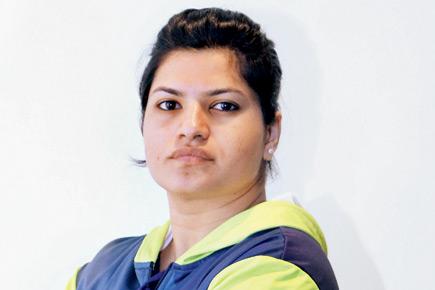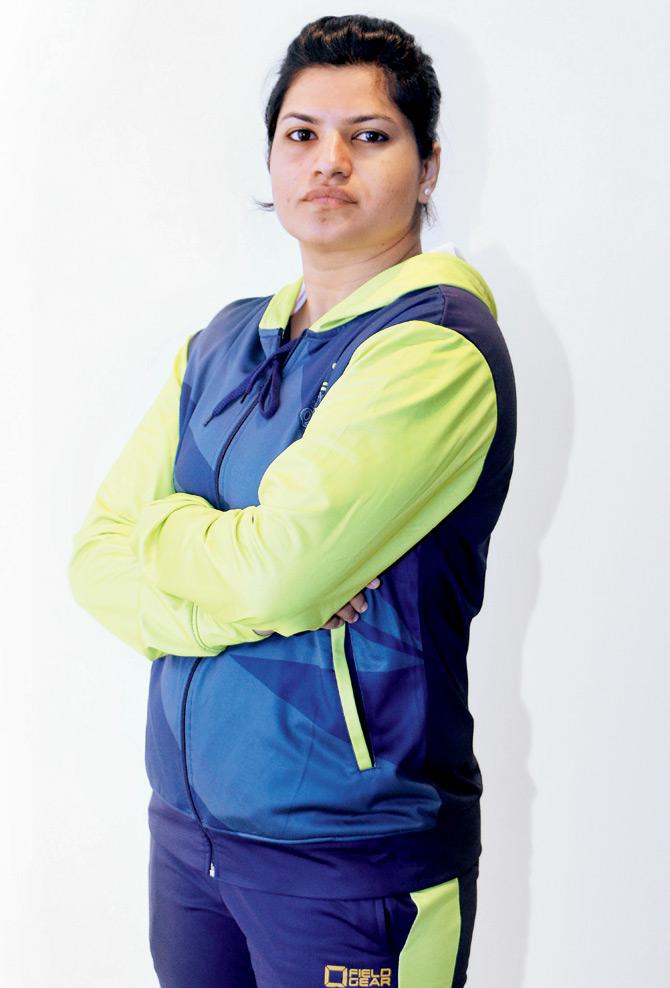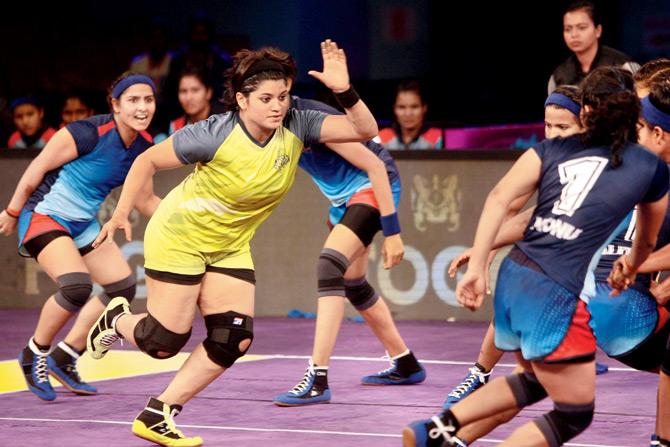The rise of Deepika Joseph from slums to a women's kabaddi league isn't the only reason to watch her slug it out tonight

Deepali Joseph
![]() 'I'll be okay with English too, you can ask!' Deepika Joseph smiles, as we greet her in dressing room of Gachibowli Indoor Stadium, Hyderabad. Joseph stands out in her team, Storm Queens, which made their debut this season with Pro Kabaddi Women's Challenge. She is stocky, wears more kohl in her eyes than her Haryanvi mates and isn't shy of being interviewed. A BA in English from Fergusson College, Pune, she is one of many seniors from the Indian kabaddi circuit who is enjoying the primetime limelight that the League has put on them. Joseph the all-rounder, or 'Didi' for her teammates, unwinds with us after a strenuous training session:
'I'll be okay with English too, you can ask!' Deepika Joseph smiles, as we greet her in dressing room of Gachibowli Indoor Stadium, Hyderabad. Joseph stands out in her team, Storm Queens, which made their debut this season with Pro Kabaddi Women's Challenge. She is stocky, wears more kohl in her eyes than her Haryanvi mates and isn't shy of being interviewed. A BA in English from Fergusson College, Pune, she is one of many seniors from the Indian kabaddi circuit who is enjoying the primetime limelight that the League has put on them. Joseph the all-rounder, or 'Didi' for her teammates, unwinds with us after a strenuous training session:
ADVERTISEMENT

Deepika Joseph
Q. How did you begin playing kabaddi?
A. I began playing when I was in the fifth standard. Our mother raised my brother and me; we used to stay in a slum, like... a chawl, and would have to get water from a common tap. On my way there, I would meet one of our neighbours, whose niece played kabaddi at the local sports club. She kept insisting that I try it out, and I did. I loved the game and there has been no looking back!

Q. Tell us about your times at this club.
A. Suvarnayug Sports Club in Pune has bred many successful players, including India's first woman kabaddi captain. I began going there only with the lure of getting a free jersey and shorts. But soon, by watching other girls, the sport grew on me and I began spending more time. I felt free and escaped my hardships for a few moments — it felt like meditation. It was worth the slack I got!
Q. What challenges did you face while rising through the ranks?
A. There was a lot of opposition, starting from my mother. Our community in Vetal Hill (a neighbourhood of narrow, winding alleys in Pune's Paud Phata area) kept ranting about me wearing shorts and coming home late from local tournaments. The thing was, my coach would only be able to drop me till outside, and I'd have to walk my way back in the dark. My mom took this seriously and kept me hungry for three days to 'teach me a lesson' and push me back to studies.
Q. Thankfully, you didn't learn any lesson...
A. (Smiles) No, I was stubborn and knew that kabaddi was my only passion. After my mom would leave by 6 pm (Meena Joseph was a nurse, on a night shift), I would sneak out to play. This landed me in trouble but after my coach intervened and explained things to her, I believe things got easier. Besides I also began getting trophies home.
Q. You were 16 when you were in the national team. How did that feel?
A. Representing India had been my dream and achieving it was satisfying. I had given my 100 percent to the path every day — by ninth standard, I had participated in my first senior nationals. It was new for me but my seniors ensured I gave my best.
Q. Would you say you spent your peak playing years with Team India?
A. I was lucky to make it to the side that went to the 2010 Asian Games, 2012 SAFF Games and the first Kabaddi World Cup in Patna, in 2012. That was the turning point for many of us as the win bagged R1 crore for myself, Abhilasha (Mhatre, captain of the Ice Divas) and Suvarna (Bartake, defender from the Fire Birds) from the Maharashtra government. My mother happily began narrating the 'keeping me hungry' story to the media! (Pauses) I wouldn't say this was the peak as I came down with a bone infection. It was on my left leg, my raiding leg, and a small portion had to be amputated. I had to switch to defence and have never felt 100 per cent fit since.
Q. Did you think of quitting kabaddi?
A. (Smiles) It's an addiction. In 2014, I had a knee injury that was so bad, I was bed-ridden for weeks and became an emotional wreck. Doctors advised me to quit and people in the locality felt it was the best time to get married and become a housewife! But I got back. The pain is still there, 24x7, but on the field, I forget about it. I cannot imagine life without kabaddi.
 Subscribe today by clicking the link and stay updated with the latest news!" Click here!
Subscribe today by clicking the link and stay updated with the latest news!" Click here!






